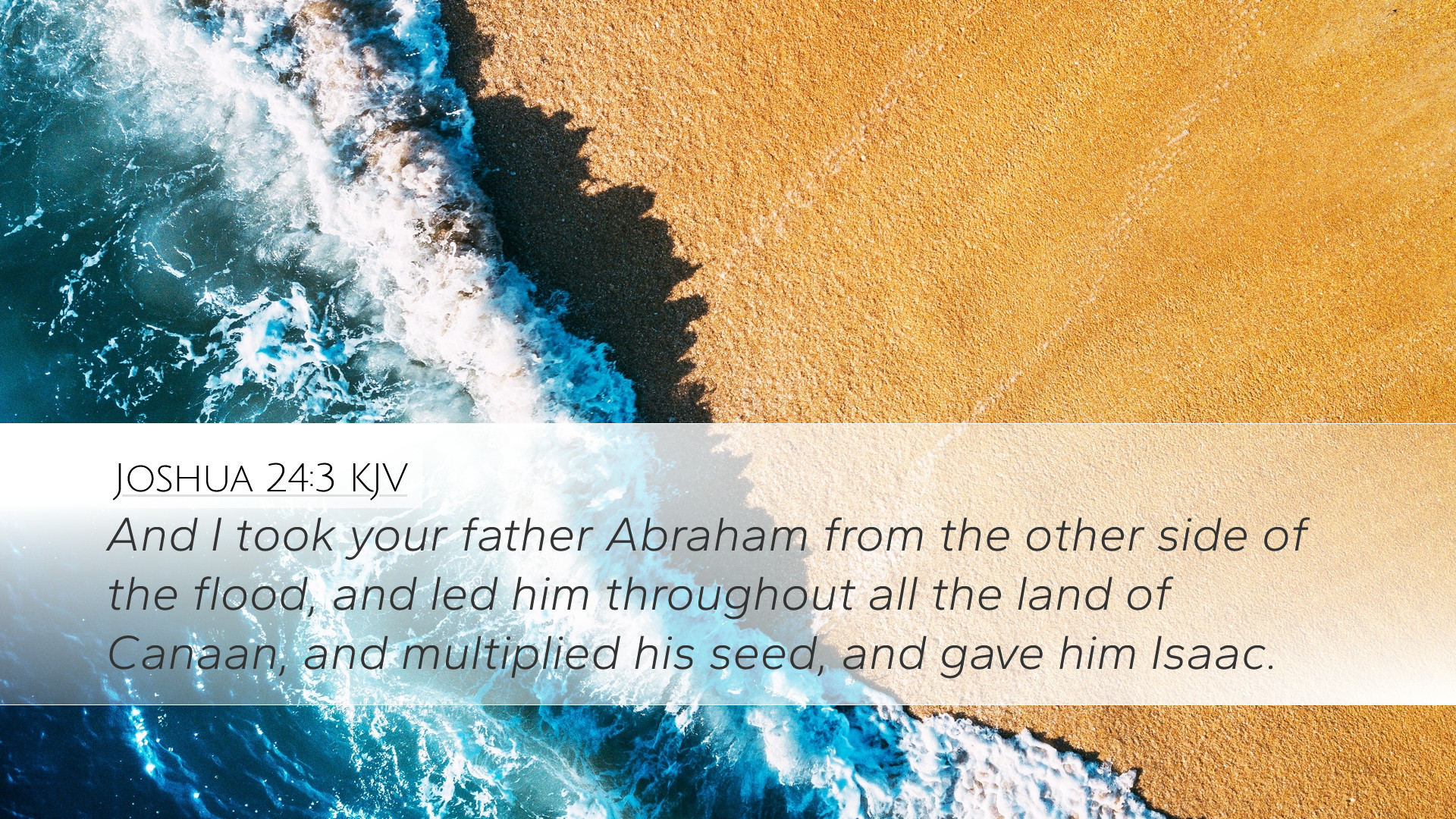Commentary on Joshua 24:3
In the final chapter of the book of Joshua, we find a critical moment in the history of Israel, where the leader reflects on God’s faithfulness and calls the people to make a significant choice regarding their allegiance. The verse reads:
“And I took your father Abraham from the other side of the river, and led him throughout all the land of Canaan, and multiplied his seed, and gave him Isaac.” (Joshua 24:3, KJV)
Contextual Background
This declaration by Joshua occurs during his farewell speech to the Israelites, recalling their covenant relationship with God. Here, we see Joshua reminding the people of their spiritual heritage and the divine initiation of their story through Abraham.
Theological Insights
1. God’s Sovereignty in Choosing Abraham
Joshua begins by acknowledging the sovereign choice of God in selecting Abraham. Matthew Henry emphasizes that God's initiative in this context highlights His authority and grace. The Lord chose Abraham not based on merit but as a demonstration of His covenant love.
- Divine Sovereignty: This speaks to the larger theological principle that God's choices are not random but purposeful, reflecting His will for salvation history.
- The Covenant Relationship: Abraham is the father of faith, and through his lineage, the covenant promise extends to all Israel.
2. The Journey of Faith
Joshua recounts that he took Abraham from "the other side of the river," which signifies a pivotal moment of transition. Adam Clarke notes that this symbolizes Abraham's departure from paganism to a journey of faith. This act of leading is crucial; it showcases God’s guidance in the life of believers.
- Crossing Over: Much like the Israelites’ own crossing of the Jordan, Abraham's journey represents a physical and spiritual transition marked by trust in God.
- Faith in Action: Abraham's call amplifies the necessity of responding to God's call, underscoring that faith is active and transformative.
3. The Multiplication of God’s Promises
The multiplication of Abraham's seed points to God’s promise of numerous descendants. Albert Barnes discusses that this encompasses both physical descendants, culminating in the nation of Israel, and spiritual descendants, reflecting God's ultimate plan for redemption through Jesus Christ.
- Generational Impact: The promise of multiplying Abraham's seed serves as a reminder that God’s blessings extend through generations.
- Fulfillment in Christ: Believers today can trace their spiritual lineage back to Abraham, fulfilling the promise that all nations shall be blessed through him (Genesis 12:3).
Practical Application
Pastors, students, and theologians can extract several practical insights from this verse:
- Covenantal Memory: The exhortation to remember God's past faithfulness is vital for spiritual health. It reinforces the notion of building a faith community that honors its heritage.
- Call to Action: Joshua’s challenge to choose whom they would serve (Joshua 24:15) compels individual and communal reflection on priorities in life and devotion to God.
- Faithfulness in Leadership: Leaders are reminded to guide their communities with an awareness of historical faithfulness, calling them into deeper relationship with God.
Conclusion
Joshua 24:3 serves as a powerful reminder of God's sovereign choice and faithfulness throughout generations. It speaks to the heart of Christian faith, encouraging believers to reflect on their spiritual lineage while steadfastly choosing to serve the Lord. As they remember their past and embrace the promises of God, they are called into a deeper, more committed relationship with the Creator.


